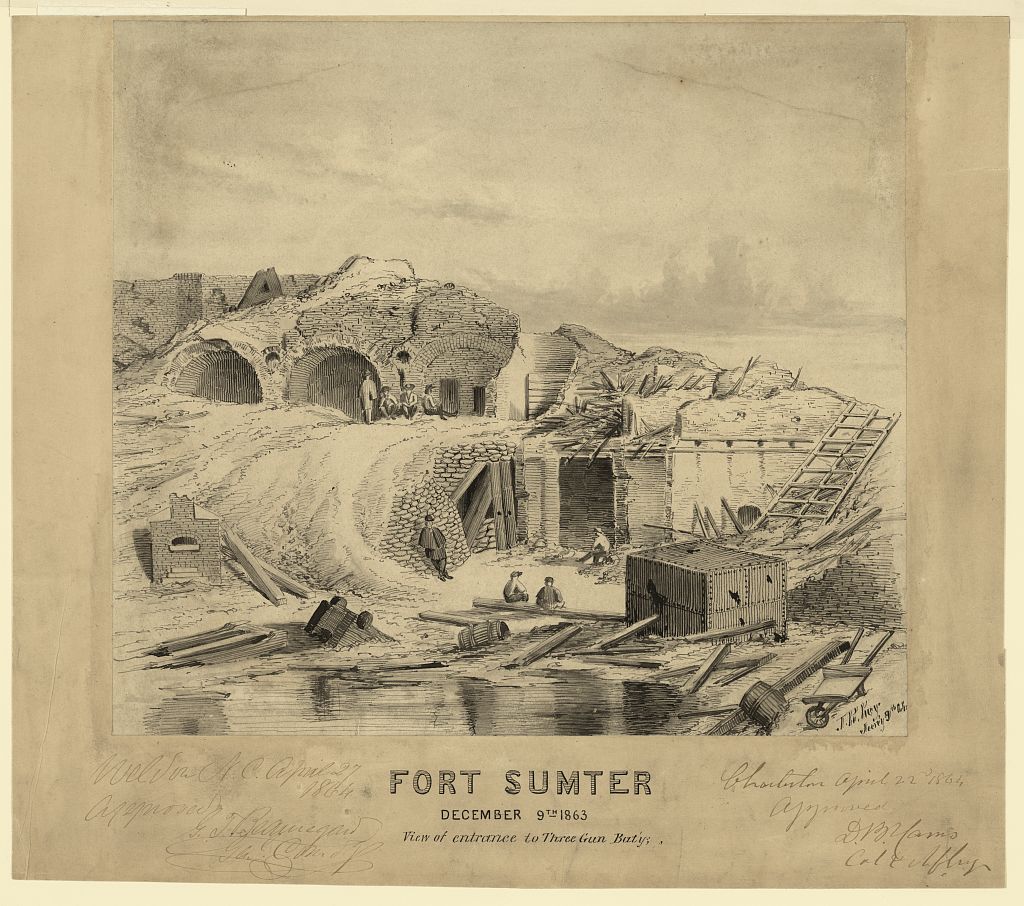Eight Weeks in Washington: Book Review

Date Created/Published: 1864 January 9.
Rights Advisory: No known restrictions on publication.
https://www.loc.gov/pictures/item/2004661292/
Eight Weeks in Washington, 1861: Abraham Lincoln and the Hazards of Transition is an intriguing look by Richard J Tofel at the challenges faced by Lincoln at the beginning of his presidency—including what to do about the handful of US forts located in southern states that had not yet been taken over by the seceded states. The most important one, perhaps, was Fort Sumter, located in Charleston, South Carolina.
Options included abandoning the fort to the budding Confederacy or traveling into enemy territory to resupply the men under the command of Major Robert Anderson. To complicate matters, members of Lincoln’s new cabinet did not agree which solution was best and communications with the navy were rudimentary at best.
Taking a Stand
Initially, Lincoln had taken a strong stand—that any fort taken by the rebels needed to be recaptured by the forces of the federal government. One of the first reality checks of his presidency was when General Winfield Scott informed him that merely resupplying the forts located in southern states that remained in control of federal forces would require a 25 percent increase in the size of the U.S. Army. This led Lincoln to rethink his policy, which shifted to his belief that any fort currently held by the US government should be maintained rather than surrendered to southern forces.
Early Days in Office
The rest of Eight Weeks in Washington, 1861 leads us through the early days of Lincoln’s command when it more than once seemed as though he did not have the physical or emotional stamina to lead the nation in the biggest crisis in its history. To add to the chaos, flocks of people came to the White House to seek appointments to offices and committees and Lincoln insisted on handling all of these tasks himself, which overwhelmed the new leader. The fact that he led a brand new political party added to the immenseness of his task—and then there were the social events arranged by Mary Lincoln that he needed to attend.
Definitely Worth Reading
In the middle of this turmoil, Lincoln needed to try to prevent the union from crumbling and civil war beginning—or, if it were to begin, he needed to ensure that the federal government (soon to be called the Union)—would win. I’m glad that I read this book as I seldom have read much about the days right before the Civil War began and this adds to my knowledge. Next on my list? I’m reading the Personal Memoirs of U.S. Grant, the tome written by the former Civil War general and former U.S. president as he was dying from cancer and in desperate need of money for his family.